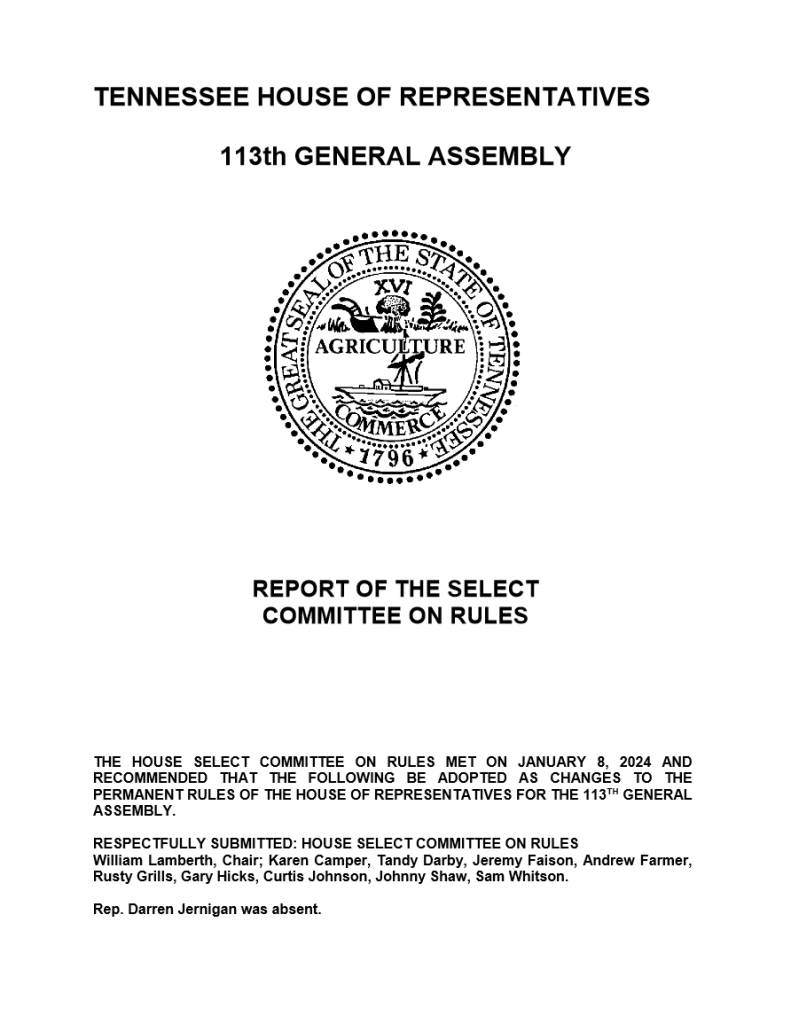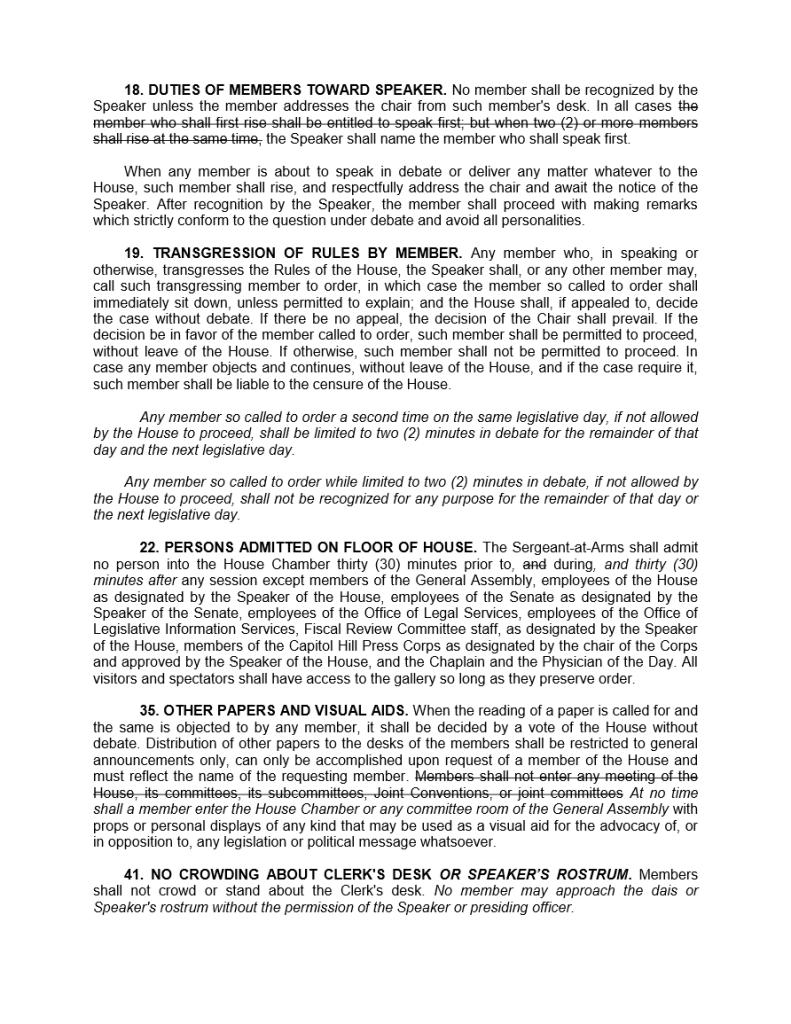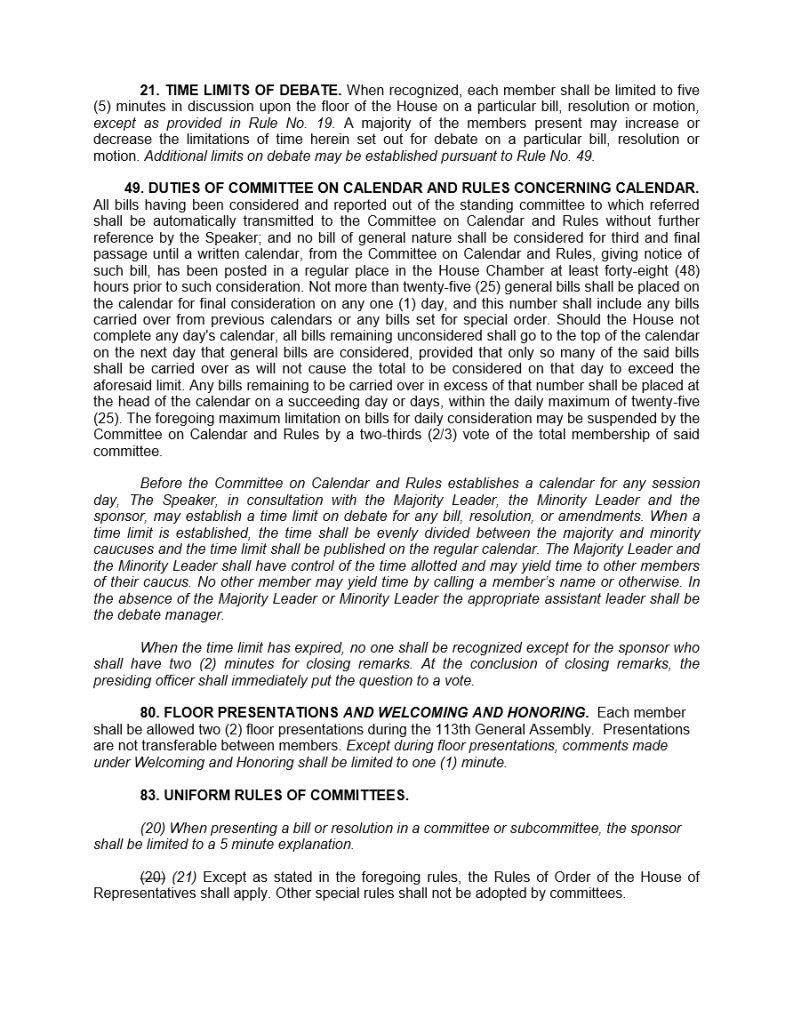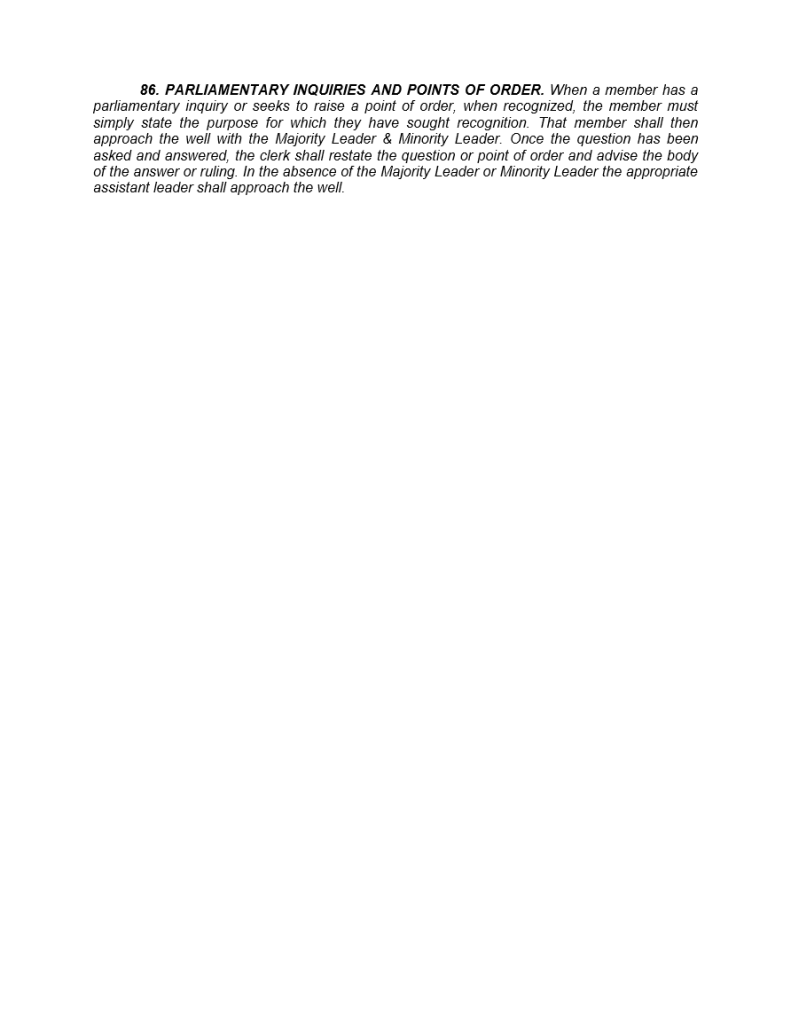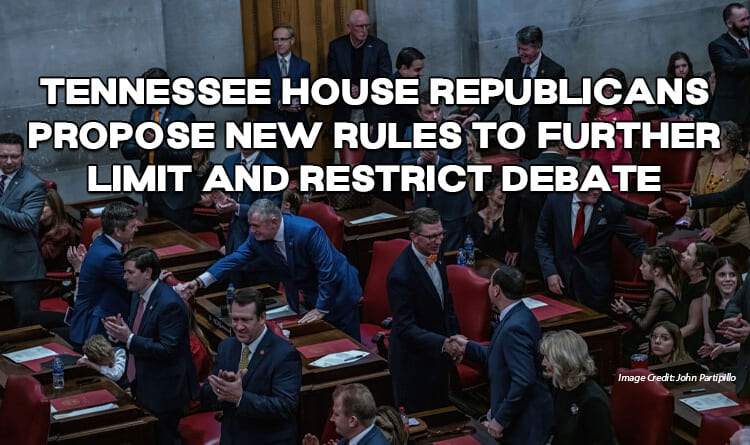New rules would bring back silencing provisions and create new system to limit the debate time on certain pieces of legislation.
Image Credit: John Partipillo
By Adam Friedman [Tennessee Lookout -CC BY-NC-ND 4.0] –
Tennessee’s House Republican supermajority wants to close several speaking opportunities in its rules, which in the past allowed Democrats to slow down the legislative process and, ultimately, garner attention that led to a fundraising bonanza.
Republicans propose eliminating lawmakers from arguing a point of order on the floor, bringing back rules to silence lawmakers deemed “off-topic” or out of order and allowing the House Speaker to determine the order of who can speak during a bill debate, the latter of which Republicans could use to cut off discussions by calling for votes on bills before Democrats have a chance to speak.
House leaders introduced the silencing rules for the August 2023 special legislative session. They’re an attempt by Republican lawmakers to find a way to stop Reps. Justin Jones, D-Nashville, and Justin Pearson, D-Memphis, from disrupting proceedings without expelling them or running afoul of the state Constitution, which requires the two men to be able to vote in person on the House floor.
During the special session, Republican lawmakers used the out-of-order rules to silence Jones for a day. The new rules give a lawmaker two strikes before the member could be banned from speaking for two legislative days.
The new proposal also allows lawmakers to restrict debate to a set amount of time. For example, Republican and Democratic leaders could agree a bill can only be debated for 60 minutes, giving each party 30 minutes to talk and caucus leaders determining who speaks. Previously, each lawmaker was allowed to speak for five minutes on each bill, meaning theoretically, Democrats could have strung out debates on legislation for nearly two hours.
The rule packages are part of an ever-increasing push and pull between Republicans trying to make it easier to pass their legislative agenda and Democrats attempting to use filibustering techniques to make it more difficult.
At the start of the 2023 legislative session, Republicans approved a rule limiting each member to five minutes of speaking time on each bill and took those rules further in an August special session to limit what lawmakers can use their time to talk about, specifying they have to remain on the topic of the bill.
Democrats, led by Jones and Pearson, have been particularly effective at using their speaking opportunities, whether on bills or through point of order, to drag out floor sessions.
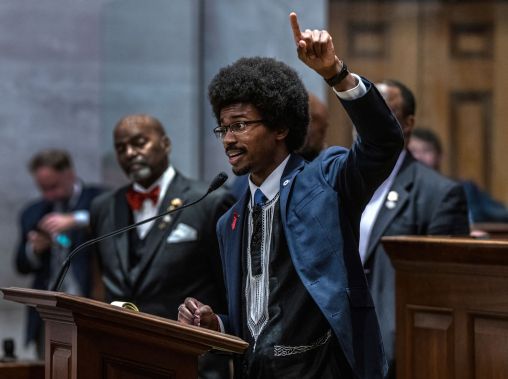
Throughout the 2023 legislative session, Republican lawmakers became more and more frustrated with the pair, culminating in their expulsions from the chamber in March after the two took control of the House speaking podium during a brief recess to protest a lack of action to address gun violence following the Covenant School shooting.
The expulsions catapulted the two men into the national spotlight and allowed them to raise nearly $2 million. The attention and money showed the effectiveness and rewards of gumming up the legislative process.
As part of the August special session rules, Republicans also tried to ban signs on the House floor and committee rooms, but a Davidson County judge struck down the rule as violating the First Amendment.
The 2024 rules don’t contain any provisions banning signs from members of the public but prevent House members from carrying signs. A rules panel, however, declined to specifically approve provisions allowing small signs to be held up in committee meetings even though several members of the public held signs during Monday’s meeting.
The House will debate the rules package when it starts its 2024 legislative session Tuesday.
The rules changes can be viewed below:
